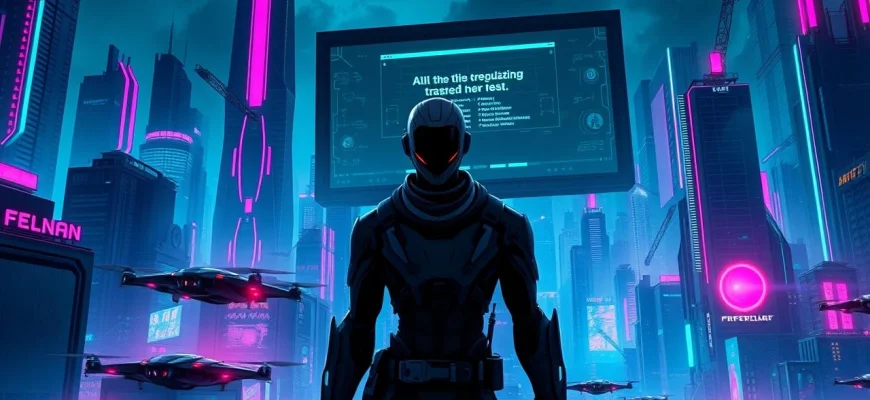If you loved the high-tech thrills and gritty action of 'Upgrade' (2018), you're in for a treat. This article explores 10 movies and shows that share its cyberpunk aesthetic, brutal fight scenes, and themes of man vs. machine. Whether you're craving more dystopian futures or AI-driven chaos, these picks will satisfy your appetite for sci-fi adrenaline.
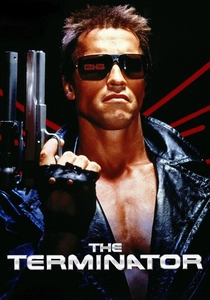
The Terminator (1984)
Description: The Terminator shares with Upgrade (2018) the theme of humans battling against advanced technology that has turned against them. Both films feature cybernetic antagonists and explore the dangers of unchecked technological advancement. The visual aesthetics are dark and industrial, with a focus on mechanical and futuristic elements. The emotional tone is tense and action-packed, with a constant sense of impending danger.
Fact: The Terminator was James Cameron's breakthrough film, launching his career as a major director. Arnold Schwarzenegger's iconic role as the Terminator was originally offered to other actors, including O.J. Simpson. The film's low budget forced Cameron to be creative with special effects, leading to innovative techniques.
 Watch Now
Watch Now 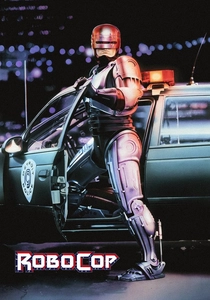
RoboCop (1987)
Description: RoboCop, like Upgrade (2018), centers on a human who is enhanced with cybernetic technology, blurring the line between man and machine. Both films explore themes of identity, corporate control, and the ethical implications of technological augmentation. The visual style is gritty and futuristic, with a mix of intense action and social commentary. The emotional tone is a balance of violence and introspection, as the protagonist struggles with their new existence.
Fact: RoboCop was directed by Paul Verhoeven, known for his satirical and violent films. The film's satirical tone was inspired by the excesses of 1980s corporate culture. The suit worn by Peter Weller was so heavy and restrictive that he had to learn to move in a robotic manner, which became iconic for the character.
 Watch Now
Watch Now 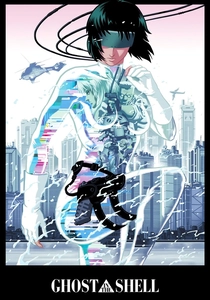
Ghost in the Shell (1995)
Description: Ghost in the Shell, like Upgrade (2018), delves into the concept of human consciousness merging with technology. Both stories explore the implications of cybernetic enhancements and the potential loss of humanity in a high-tech world. The visual aesthetics are similarly cyberpunk, with a mix of futuristic cityscapes and intimate, character-driven moments. The emotional tone is contemplative, questioning what it means to be human in an increasingly digital age.
Fact: Ghost in the Shell is based on the manga of the same name by Masamune Shirow. The film has been highly influential in the cyberpunk genre, inspiring works like The Matrix. The 2017 live-action adaptation starred Scarlett Johansson, sparking debates about whitewashing in Hollywood.
 Watch Now
Watch Now 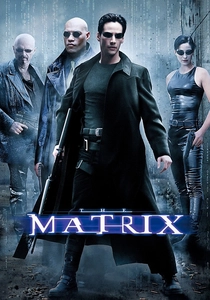
The Matrix (1999)
Description: The Matrix shares with Upgrade (2018) the theme of humans interfacing with technology in a way that blurs the line between reality and simulation. Both films feature protagonists who gain extraordinary abilities through technological means, leading to intense action sequences and philosophical undertones. The visual style of both films is sleek and futuristic, with a focus on high-tech combat and cybernetic enhancements.
Fact: The Matrix revolutionized action cinema with its innovative 'bullet time' visual effects. The film's premise was inspired by philosophical concepts such as Plato's Allegory of the Cave. Keanu Reeves performed many of his own stunts, including the famous rooftop jump.
 Watch Now
Watch Now 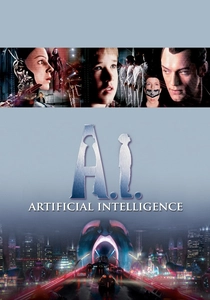
A.I. Artificial Intelligence (2001)
Description: A.I. Artificial Intelligence shares with Upgrade (2018) a deep exploration of the relationship between humans and artificial beings. Both films examine themes of identity, consciousness, and the ethical dilemmas surrounding advanced technology. The emotional tone is poignant, with a focus on the protagonist's journey to understand their own existence. The visual style is futuristic yet grounded, creating a believable world where technology and humanity intersect.
Fact: The film was originally a Stanley Kubrick project, later directed by Steven Spielberg after Kubrick's death. Haley Joel Osment's performance as the android David was critically acclaimed. The movie's ending has been a subject of debate among fans and critics for its emotional ambiguity.
 Watch Now
Watch Now 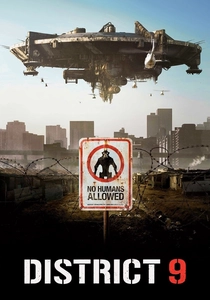
District 9 (2009)
Description: District 9 shares with Upgrade (2018) a focus on transformation and the merging of human and alien (or technological) elements. Both films explore themes of identity, discrimination, and the struggle for survival in a hostile world. The visual style is documentary-like and gritty, with a mix of action and emotional depth. The tone is intense and thought-provoking, as the protagonists undergo profound changes that challenge their understanding of themselves.
Fact: District 9 was directed by Neill Blomkamp and produced by Peter Jackson. The film was made on a relatively low budget but became a critical and commercial success. The story was inspired by real-life events in apartheid-era South Africa, adding a layer of social commentary.
 Watch Now
Watch Now 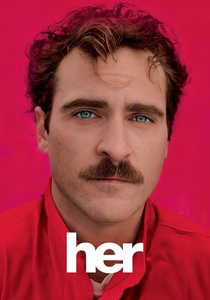
Her (2013)
Description: Her, like Upgrade (2018), explores the intimate relationship between humans and artificial intelligence. Both films delve into the emotional and psychological impacts of forming deep connections with non-human entities. The storytelling style is introspective, focusing on the protagonist's personal journey. While Her has a more romantic and melancholic tone compared to Upgrade's action-oriented approach, both films question the nature of love and consciousness in a technologically advanced world.
Fact: Her was written and directed by Spike Jonze, who won an Oscar for Best Original Screenplay. The voice of the AI, Samantha, was performed by Scarlett Johansson. The film's futuristic setting was inspired by present-day Shanghai, giving it a unique visual style.
 Watch Now
Watch Now 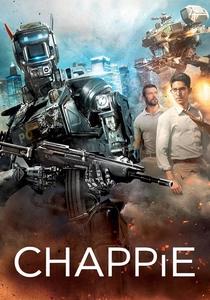
Chappie (2015)
Description: Chappie, like Upgrade (2018), features a protagonist whose consciousness is intertwined with technology. Both films explore themes of artificial intelligence, free will, and the potential for machines to develop human-like emotions. The visual style is gritty and futuristic, with a mix of action and heartfelt moments. The emotional tone is a blend of excitement and introspection, as the characters navigate their unique circumstances.
Fact: Chappie was directed by Neill Blomkamp, known for District 9 and Elysium. The film stars South African rap-rave group Die Antwoord, who play fictionalized versions of themselves. The robot Chappie was brought to life using a combination of practical effects and CGI.
 Watch Now
Watch Now 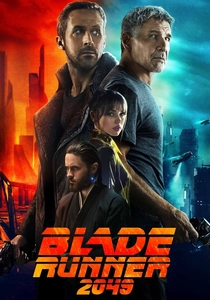
Blade Runner 2049 (2017)
Description: Similar to Upgrade (2018), Blade Runner 2049 explores themes of human augmentation, artificial intelligence, and the blurred lines between man and machine. Both films feature a dystopian future where technology has advanced to the point of merging with human consciousness. The visual aesthetics of both films are dark, gritty, and cyberpunk-inspired, with a focus on neon-lit urban landscapes. The emotional tone is also similar, with both films delving into existential questions about identity and humanity.
Fact: Blade Runner 2049 was directed by Denis Villeneuve, who is known for his visually stunning and thought-provoking films. The film was shot by legendary cinematographer Roger Deakins, who won his first Oscar for this film. The movie serves as a sequel to the original Blade Runner (1982), but stands on its own as a unique story.
 Watch Now
Watch Now 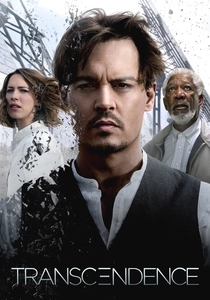
Transcendence (2014)
Description: Transcendence shares with Upgrade (2018) the theme of human consciousness being uploaded into a digital realm. Both films explore the consequences of merging human minds with advanced technology, raising questions about identity and morality. The visual aesthetics are sleek and high-tech, with a focus on the transformative power of technology. The emotional tone is suspenseful and thought-provoking, as both protagonists grapple with their new forms of existence.
Fact: Transcendence marked the directorial debut of Wally Pfister, the longtime cinematographer for Christopher Nolan. Johnny Depp plays the lead role of a scientist whose mind is uploaded into a computer. The film's premise was inspired by real-world advancements in artificial intelligence and neuroscience.
 Watch Now
Watch Now 
